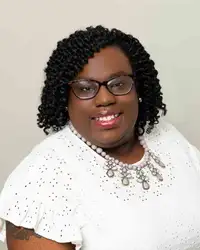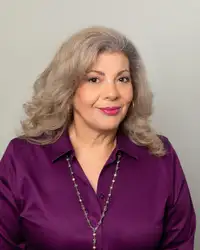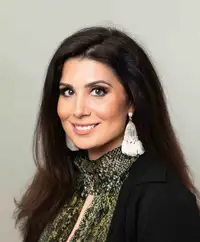
Gottman Method
The goals of the Gottman Method are primarily applied in couples therapy. Research-based interventions are used to reduce conflict and increase intimacy, improve friendship and respect, deepen connection and affection, and create changes that enhance a couples’ shared goals.
Three main areas of a relationship are targeted in Gottman sessions. These are friendship, conflict management, and creation of shared meaning. The therapist’s goal is to help their clients build stronger relationships overall and to set them up with effective ways to cope in the future when issues arise.
Common issues addressed with the Gottman Method:
Frequent conflict and arguments
Poor communication
Emotionally distanced couples on the verge of separation
Specific problems such as sexual difficulties, infidelity, money, and parenting
The Gottman Method focuses on nine components of healthy relationships known as “The Sound Relationship House Theory.”
Build Love Maps
Share Fondness and Admiration
Turn Towards Instead of Away
The Positive Perspective
Manage Conflict
Make Life Dreams Come True
Create Shared Meaning
Trust
Commitment
To learn more about these components and the Gottman Method, see this site.

Person-Centered, Open-Minded, Integrative
Life Transitions, Personal Growth, Relationship Issues, Depression and Anxiety
Mind-Body, Trauma-Informed, Somatic Psychology


Personal Growth and Life Transitions
Self-Compassion and Mindfulness
Substance use and Relapse Prevention

Strengths-Based and Integrative
Warm and Collaborative
Chronic Illness, Chronic Pain, Disability. Life Transitions, Depression, Anxiety

Couples - Communication, Affair Recovery, Deeper Relationship
Anxiety, Personal Growth, Life Transition
Family of Origin issues, Culturally Informed Counseling

Anxiety & Stress, Depression, Trauma, Identity Formation
Collaborative, Relational, Authentic
Anti-Oppressive, Anti-Racist, LGBTQIA+ Affirming, Sex-Positive

Warm, Curious, Compassionate
Strengths-based, Trauma-Informed Care
LGBTQIA+ and Neurodiversity Affirming

Empathic, Warm, Neurodiversity Affirming, LGBTQIA+ Ally
Holistic, Strengths-Based, Person-Centered
Anxiety, Depression, Trauma, ADHD

Couples Issues Surrounding Family Life Cycle
Relationship With Self
Attachment, Safety, and Trust

Anxiety and Depression
Trauma-Informed, Culturally Sensitive
Mindfulness and Person-Centered

Trauma-informed, CBT, Attachment & Trust
Life Transitions, Personal Growth, Stress Management, Family & Relationship Issues
Collaborative, Modern, Warm, & Authentic

Humor, Authenticity, and Compassion
Anxiety, Purpose, and Meaning-Making
Couples and Relationship Issues

Relationships, Interpersonal Issues, Healthy Boundaries
Grief and Loss, Life Transitions
Anxiety, Depression, Stress

Personal Growth and Life Transitions
Grief and Loss
CBT, Strengths-Based, Narrative Approach

Life Transitions and Personal Growth
Depression, Anxiety, and Substance Use
Couple and Relationship Issues

Generalized and Social Anxiety, Perfectionism, Overcoming Self-Doubt
Healing Relational and Attachment Wounds
Combines Practical Tools With Insight-Building Strategies
.webp)
Shame, Anxiety, and Loss
Interpersonal and Relationship Issues
Mindfulness and Self-Compassion Skills

Anxiety, Stress, Low Mood, and Depression
Self-Compassion, Resiliency, and Personal Growth
Authentic, Relational, and Accepting

Trauma-Informed, Collaborative, Person-Centered
Personal and Relationship Growth, Solution/Skill Focused
Bilingual (English/Spanish), Neurodiversity-Affirming

Genuine, sense of humor, compassionate
Trauma-informed, addiction recovery, athletic success
Life transitions, anxiety, depression, grief and loss

Open-minded, warm, and direct
Person-centered, trauma-informed, and collaborative approach
Grief and loss, anxiety, depression, chronic illness, life transitions

Anxiety, Depression, Grief and Loss
Couples and Individuals, Self-Esteem, Personal Growth, and Body Positivity
Safe environment for all body types, cultural and religious beliefs, relationship types, and sexualities (LGBTQIA+ Affirming)

Domestic Violence Prevention, EMDR Trained and Trauma-Inform
Self-Compassion, Mindfulness, Stress Management, and Anxiety
Shame, Loss, and Taming the Inner Critic

Relationship/Communication Issues and Conflict Management
Exploring Sex, Sexuality and Ethical Non-Monogamy
Strengths-Based and Mindfulness Techniques

Autism, Spectrum Disorders, and Learning Disabilities
Trauma and Crisis (EMDR Certified)
Relationship Issues

Warm and accepting
Curious and compassionate
Anti-oppressive, trauma-informed, and LGBTQIA+ affirming

Silence Inner Critic
Anxiety and Depression
Life Purpose and Direction

Anxiety, Depression, Trauma, and Relationship issues.
Holistic, Strength Based, and Mindfulness
Accepting, Empathic, Relational

Feminist, Social Justice-Oriented
LGBTQIA+ Affirming
Authentic, Person-Centered, and Strengths-Based Relational Counseling

Open-Minded, Warm, and Supportive
Couples—Relationship and Connection Issues
Healing Past Wounds and Personal Growth

Feminist, Health at Every Size (HAES), LGBTQIA+ Affirming, Knowledgable of ADHD/Autism
EDMR, Trauma Informed, Person-Centered, and Attachment Focused
Authentic, Quirky, Compassionate, Good Sense of Humor
